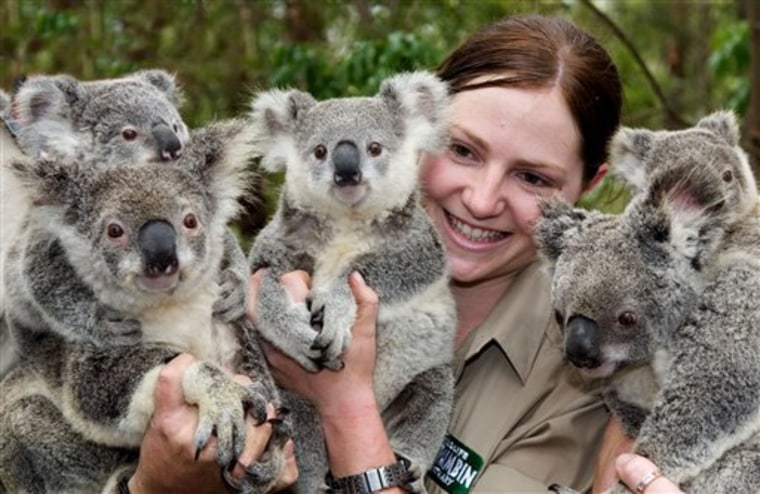Scientists on Monday unveiled three test tube baby koalas produced with new artificial insemination technology designed to ensure the species' survival.
Three of the eight koalas, all born on the Gold Coast in Queensland state, made their first public appearance at a local wildlife sanctuary. They are between 10 and 12 months old.
They were conceived using new breeding techniques, which involve mixing sperm with a special solution that prolongs its shelf life.
Steve Johnston, the project leader and reproductive biologist at University of Queensland's School of Animal Studies, said his team now had the technology to use transported koala semen in Australia and eventually overseas.
"We've been able to dilute the sperm down to a medium which allows it to be kept alive for long periods of time," Johnston said in a statement. "The next vital step is the use of chilled sperm and then thawed frozen sperm from the sperm bank."
Some 25 koalas have been produced by artificial insemination with a success rate approaching that of natural mating.
The koala is not classified as an endangered species but is listed as vulnerable to extinction in parts of Queensland and neighboring New South Wales state.
"We don't want to claim the technique as the solution to koala conservation but more of a tool for genetic management and animal welfare _ an extra insurance policy," Johnston said.
The researchers also plan to create the world's first koala sperm bank where samples will be screened for common koala diseases such as chlamydia.
